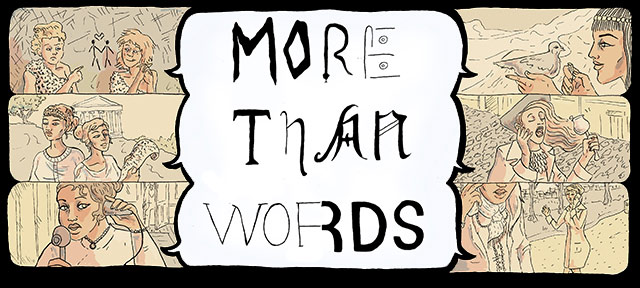
Identity terms have really hard jobs. Seriously, think about all the things they have to do! There’s that private shine the right one is supposed to have when you call yourself it in your head. There’s the categorical meaning they’re supposed to take on when you use them to describe yourself to other people. And then there’s the baggage each drags along — the baggage of connotation and etymology, baggage that can be useful and positive (when it reminds us of shared community and shared history, for example) or negative (say, when it’s used to stereotype). At some point, privately or publicly, every well-examined word struggles under the pressure. And there’s no group better at thorough public examination than us QUILTBAGs.
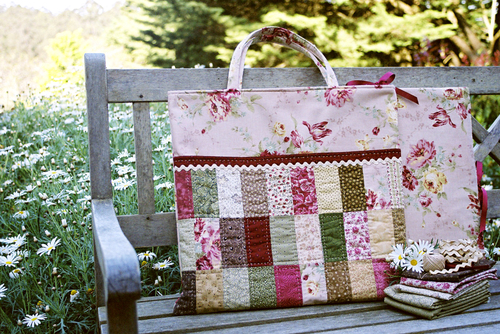
At the moment, the word “bisexual” is in the cooker — and its case throws those warring pressures (of community and individual identification, and of cultural and etymological history) into sharp relief. Which means it’s a great time to map those pressures out. Let’s take a look.
“Bi” as a prefix or infix comes from the Proto-Indo-European root *dwo, for “two.” This became the Old Latin *dvi and then Latin bi, which survived the transfer to English intact. You could even say it thrived — it shows up everywhere from biathalon to bivalve to labia (which come in pairs, after all).
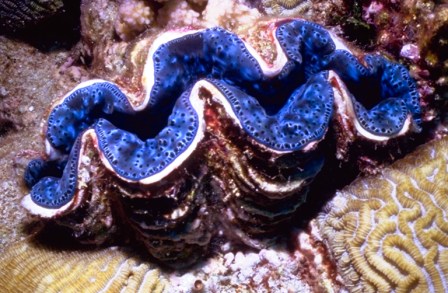
No recorded use of “bisexual” exists until 1824, at which point it meant what intersex does now. The term was repurposed to mean “attracted to both sexes” in 1892, when neurologist Charles Gilbert Chaddock wrote an English translation of Richard von Krafft-Ebing‘s Psychopathia Sexualis. (The Psychopathia Sexualis is a collection of 238 case studies of sexual behavior that — in the process of positioning all non-procreative sex as perverse — also managed to popularize the words “masochism” and “sadism.”)
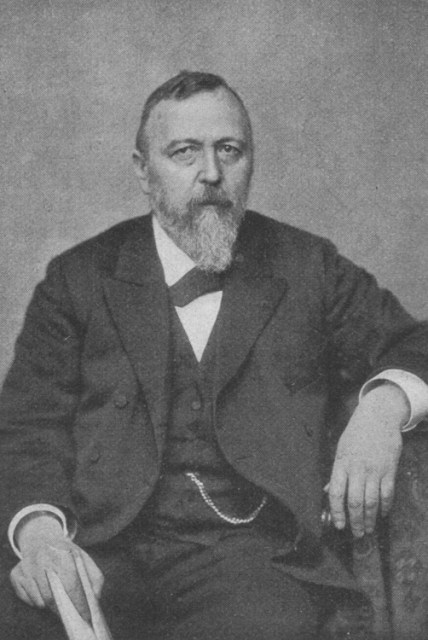
The term didn’t come into wide use until the 1950s (DSM III?). In the meantime, people (generally psychologists) proposed alternatives, including “ambisexual,” coined by S. Ferenczi in his 1916 book Sex in Psycho-Analysis, to better “connote that we understand by this predisposition, not the presence of male and female material in the organism (Fliess), nor of male and female sex hunger in the mind, but the child’s psychical capacity for bestowing his erotism, originally objectless, on either the male or the female sex, or on both.”
Early usage of this word — like most sexuality-related words — was largely clinical. Psychologists threw it around more than the people it was supposedly describing. In 1910 Freud published his infamous theory of “innate bisexuality”: that all humans are originally predisposed to be non-monosexual, but “in the course of development” become heterosexual, as long as everything goes according to plan (this theory — like most sexuality-related theories! — was based on dubious science, incorrect conflations of sex and gender, and societal influence, but was pretty popular in its day). Freud’s contemporary, Wilhelm Stekel, actually took Freud’s theory and used it to argue that bisexuality is a more “natural” state, but his theory got less traction. In 1948, Kinsey published his Scale, which, though also oudated, vanguarded a “breathtaking assault on the hetero-homo divide.” (Kinsey himself didn’t use the word bisexual in his work, because he felt it “implied a biological origin of bisexuality rather than a psychic one.”)
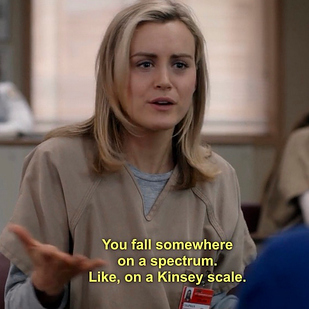
As usual with queer identity labels, instances of bisexual self-identification reached a critical (recorded) mass around the same time as LGBT rights movements took off — and it’s easiest to trace the word’s spread via the people who led those movements. Stephen Donaldson (aka Donny the Punk) began identifying as bisexual in 1966 after spending years as a gay activist. Maggi Rubenstein, then a nurse at at a San Francisco LGT health center, came out in 1969 during a staff meeting, which inspired her workplace to become an LGBT health center. Throughout the 1970s, bisexual advocacy groups were formed in major cities around the United States. A Quaker group called the Committee of Friends on Bisexuality published “The Ithaca Statement on Bisexuality” in 1972 in The Advocate, marking the first time a US religious institution had acknowledged bisexuality. In 1978, Fritz Klein, a psychologist AND a self-identified bisexual person, published The Bisexual Option (1978). In the book, Klein “drew the conclusion that sexuality defies rigid, well-defined categories; still, he worked throughout his life as a bisexual activist,” eventually later founding Bisexual Forums in New York and San Diego, along with the Journal of Bisexuality and the American Institute of Bisexuality.
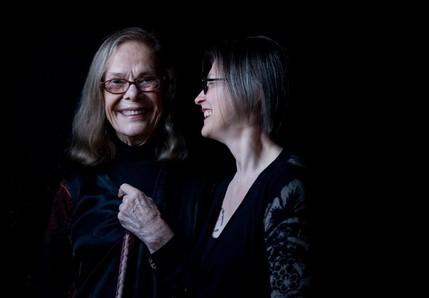
Lately, some people have started looking around for a different term. The main concern for most people is that, because many people identify outside of the gender binary, the “bi = 2” part of the word is becoming less and less relevant, and potentially exclusionary. This conversation is loud on Tumblr, where people have proposed alternatives, and objections to those alternatives (“Go Home Biphobia” has a good rundown of both). Some people are looking for this word to describe themselves; others seek an umbrella term that can be used to refer to all people who don’t identify as monosexual. The golden egg would be a word that wasn’t defined in opposition to another group (i.e.”non-monosexual”), didn’t privilege sexual attraction over other types of attractions, and avoided current prefixes (such as bi-, pan-, and poly-) that are used already. Shiri Eisner, a longtime bisexual activist, told me that if an alternative is necessary she recommends “multi-spectrum,” which she considers “as close as it gets to an elegant and inclusive solution.” Our very own Stef uses the word bisexual to refer to the community as a whole, but prefers “sexually fluid” for herself, because “it seems hard to pick a word to describe something that has the potential to change, so describing that change instead makes more sense to me.”
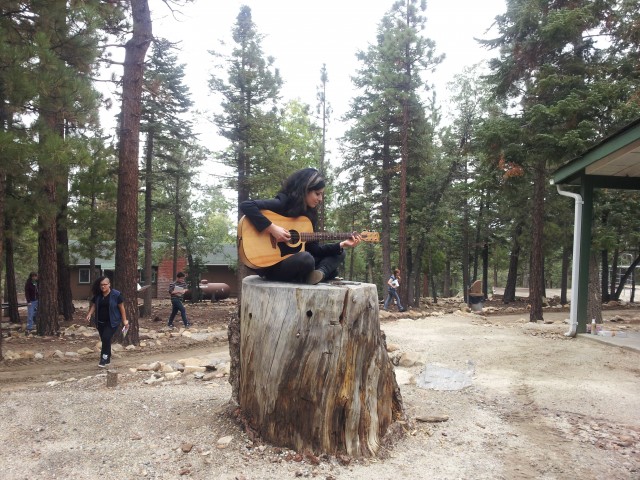
At the same time, it doesn’t make any sense to assume that bisexual people are really attached to the literal meaning of the word — as the Bisexual Resource Center puts it, “no one would say that miserable people can’t be “gay” because they’re not happy or upbeat all the time; nor are lesbians [only] women who hail from the Greek island of Lesbos.” Literal-historical translation of a term — especially a term invented by medical professionals in order to diagnose several different things that used to be considered diseases — should not be considered that term’s primary meaning. And the push specifically against “bisexual” is surprising, especially since there are so many other words and identities out there that technically imply that a binary exists (it’s also worth pointing out that there are plenty of bi people who themselves identify outside the gender binary). Just because news outlets have had a little trouble catching on in no way negates the way actual bisexual people define their own identity. Eisner told me that although she agrees that “umbrella terms need to be as inclusive as possible, and that words that feel exclusive to people should be avoided, I still find it suspicious that so many people want to dissociate themselves from bisexuality… I find that, a lot of the time, this feeling is based in biphobic notions, such as that bisexuality is always and inherently oppressive (towards any other groups, and especially trans* people, and pansexual, polysexual and omnisexual people), and that it’s never viable as an identity word.”
In order to strike a balance, many people who identify as bisexual take care to define the word for themselves publicly. Robyn Ochs, who has been a bisexual activist for over thirty years, has a page on her website where she does just that:
“I call myself bisexual because I acknowledge that I have in myself the potential to be attracted – romantically and/or sexually – to people of more than one sex and/or gender, not necessarily at the same time, not necessarily in the same way, and not necessarily to the same degree.”
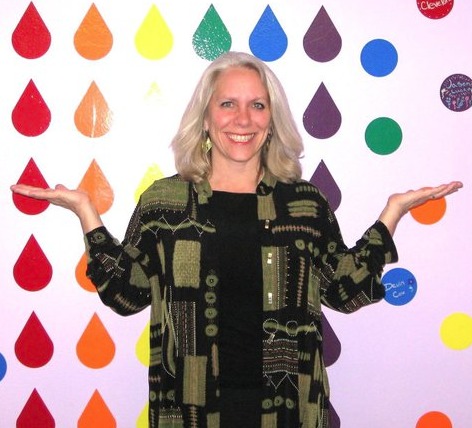
Eisner told me that she “hopes that “bisexuality” will become accepted some day as the umbrella term.” To her, the word is dense with implications that reach far beyond attraction:
“At the basis, bisexuality means to me attraction to people of more than one gender, or to people of genders similar to and different from mine. But that’s just the basis. Identifying as bisexual for me also means resisting biphobia and monosexism, it means rebellion in heteronormativity, patriarchy and cissexism, it means solidarity and identification with all bisexual people, and with queer and trans* people as a whole. It also connects me in solidarity with other marginalized groups… ultimately for me, bisexual identity is about resisting all hierarchies and seeking liberation for everyone. In a very personal sense, in my life, bisexuality has meant accepting myself as different from social norms, celebrating that difference and subverting the norm itself.”
Bisexual people have suffered disproportionately from invisibility, erasure, biphobia, terrible representation on The Real L Word, shockingly low emotional and physical health, and even worse New York Times headlines than most identity groups. The bisexual community struggled for decades to reclaim a word in order to describe an identity that still slips through the cracks. While communal quests for inclusivity are noble — and it would be great to find an umbrella term that all the people it covers want to stand under — we have to make sure that, in searching, we don’t negate that history. Because identities are, y’know, more than words. And words are more than the sum of their parts.
***Many thanks to Rachel for this idea!
This has been the thirty-fourth installment of More Than Words, where I take queer words of all sorts and smash them apart and see what makes them tick. Every week I dissect a different word, trying to figure out where it came from, how it has evolved, where it might be going, and what it all means. It’s like reading the dictionary through a prism. Feel free to send word suggestions to cara@autostraddle.com.
Header by Rory Midhani








Comments
Another awesome More Than Words – thank you Cara!
I’ve just started reading Shiri Eisner’s book, I’m hooked already. And Robyn Ochs’ explanation of what bisexuality means to her is something I quote to people if they ask me about my orientation (and I feel like discussing it at the time :) ) as it really resonates with me
Ditto to every part of this! I am really enjoying Eisner’s book so far :)
I got to be part of a training where Robyn Ochs came to speak, and in addition to just being awesome, she mentioned the term “middle sexualities” as a kind of umbrella term for more academic contexts, which I really liked (she said she got that from someone else but now I forget who). She also said she sometimes says “PSP,” for “people who have sex with people,” which I like as a jokey way to get my point across sometimes :)
Ugh Robyn Ochs is so cool and this is so cool. Thanks for putting this together, Cara!
Serious love for Eisner and the book Bi Notes! It was that book that encouraged me to stand up for my bisexuality when someone that did not identify as bi would undermine my sexuality. Aggressively Bi People <3
I’m so happy you posted that Robyn Ochs quote. It’s the best and most articulate explanation of why I identify as bisexual that I’ve ever read. She puts into words what I’ve felt in my heart ever since I first fell in love with another woman.
This article was so awesome! I really enjoyed it. Words are so important and powerful! I struggled with the word “bisexual” a lot when I was first coming out. I had dated and been attracted to men in the past and now was attracted to/dating women. I felt like I needed a label but was really stressed out because I thought that whatever I chose had to be my word forever. Considering my sexual, romantic, and other attractions hadn’t stayed the same throughout the first 18 years of my life, why would it stay the same for the next 5 or 10 or 20? Was bisexuality cissexist? Did it imply an equal attraction to both/all genders? Could you be a lesbian if you had dated/loved/enjoyed sex with men? I also had a lot of internalized biphobia, even as an ally to and member of the LGBT community. I started identifying as queer because I liked how open it was–people couldn’t pin it (and therefore me) down. Yet I knew queer was kind of a white/academic word to many folks and that a lot of people both inside and outside of the LGBT community only knew it as a slur. Over time, because it is something people had heard and could recognize and because I feel that biphobia and bi-invisibility are huge problems, I started openly and even proudly identifying as bisexual. I definitely think of bisexuality along the lines of Robyn Ochs’ explanation and will probably use/reference that definition from now.
Yesyesyes!!
The more I see an article portraying bisexuality as a legit thing, the less I let questions like “are you sure you’re really bi?” get to me, or impose them on myself. When I only hear about gay and lesbian, I start thinking maybe I am gay and was just in denial, or maybe I am straight but I just want to be part of this thing because I’m frustrated with dating.
I feel the same about queer too: great catchall, but awfully inaccessible word for others. I want to identify with the community but the majority of my friends are outside the community. I don’t want them to feel like they have to tiptoe around every issue relating to sexuality with me, and since they generally understand “bi” more than “queer”, it’s a better word for me.
For me, queer really clicks as an identifier. But I still use the word bisexual to describe myself. I see it as a descriptor of my attractions more than anything else.
I use bisexual in two main contexts :
– when talking to folks outside the community about my sexuality
– when I need to clarify that I am attracted to many genders, as queer means many things to many people
Such a great article – thanks!!
Ah yes, Psychopathia Sexualis. I remember spending a few hours flipping through that volume at the Kinsey Institute. I was doing research for a paper connecting mainstream transgender narratives to medical rhetoric & authority. My unrelentingly passion for rhetoric and linguistics (intersecting with oppression), caused me to linger in that book far too long. It was disturbing and fascinating. “Bisexual” was definitely one of the -nicer- terms that was being used to indicate intersex conditions; I’ll just leave it at that.
uhhhh can i read that paper
serious question
Ummm. Well, I’m in the early stages of editing that paper to be a part of my grad school application actually, but I’d be glad to pass it along when I’m done. ;D
Also, did anyone else have N’SYNC pop in their head after reading the title of this article? ..or am I alone on that? >.>
yooooou know that i can’t take no more (oppression) / it ain’t no lie
iiiiiii wanna see you out that (closet) door
I’m coming out tonight
You’re probly gonna say you were right
I felt slow that it took a little while for it to pop into my head.
I thought that pansexual was the term for bisexual updated to reflect gender spectrum instead of gender binary. Is that incorrect?
I’ve met many pansexual and bisexual people that each have their own unique spin to why they identify one way or the other. For some people, pansexual may reflect the inclusion of non-binary genders. For other people, pansexual may reflect that their attraction is not hinged on gender. There isn’t really a right or wrong answer as to how pansexual or bisexual can be defined.
It varies depending on whom you ask. For me, I identify as Pansexual. What that means to me personally, is that I am attracted to other consenting adults if there is a certain *spark* or chemistry there, which mostly is part of their essence, their persona, and has little at all to do with their gender identity, looks, physical features, genitalia, etc.
That doesn’t mean I don’t look at some folks and think
“Wow! They’re hot!”… But for me there has to be that connection beyond physicality or I am not attracted to them sexually or romantically.
I have become more and more interested in the newer term “GSRM” (Gender, Sexual, and Romantic, Minorities), because the terminology allows for a much broader, more diverse way of expressing ourselves…
e.g. I would be: Female/Woman, Pansexual, Pan-Romantic, Polyamory-friendly.
Someone else might identify as asexual, but they will form romantic/emotional relationships with women.
Another may be sexually attracted across the sexual spectrum, yet only form romantic relationships with women, who fall on a certain part of the spectrum.
My general take is that if a person tells me they ID a certain way, then I accept that they know themselves.
Can someone tell me why “pansexual” is not a better word for bisexual?
Same reason that not every woman-attracted-to-women has to call herself a “lesbian”. Some people prefer one term over other options, and there’s nothing wrong with that preference.
because some people identify as bisexual and prefer that label. I’m fine with being called bisexual, pansexual, or queer, since they all describe my sexual orientation well enough but some people just prefer one to the other, and that’s OK too.
I don’t relate to pansexual because my attraction to men and women is verrry different, and pansexual seems to always come up in terms of not seeing gender or having gender be part of attraction — that’s just not my experience, though I do understand that pansexual can have various meanings beyond the one I just mentioned. However, though I have never (knowingly) been attracted to a person of another gender, if I did I don’t feel it would invalidate my id as bisexual. Still, I mostly use queer because I think it better encompasses the whole of my sexual, romantic and political experience as a woman.
Thank you so much! This is a great personal explanation, I think I understand how the two could be personally different a lot better now.
The nuances between the two words are hard to describe. I have no idea if this is true, but “pan” does have the connotation (to me) of “falling in love with the person, not the gender.” That is super-cool, however, that is not the case for me at all. Gender is a HUGE reason for my attractions. That’s why I don’t really use pansexual.
Because bisexual doesn’t need a better word to replace it.
Some people identify as pansexual, some people identify as bisexual, some people identify as queer and they are all valid identities.
This is super juvenile, but pansexual always makes me think of being attracted to mystical woodland creatures/kitchenware.
It’s not just you, Dina. I remember as a joke my ex once took a picture of themself making out with kitchenware just for the “pansexual” pun. We also decided that the pan equivalent of a “flaming homosexual” was a “frying pansexual”. :D
Frying pansexual. Oh my god I almost peed myself.
This was so awesome, thank you!
I wonder though, why can’t queer be an umbrella term?
I think in the long term it may end up winning out as the go-to umbrella term, but for some people (especially those who have been around long enough to have heard it regularly slung around as an insult) it still carries a lot of negative baggage.
I believe the umbrella term the author is referring to is specifically for the non-monosexual community, and queer is already in use as an umbrella term for all non-normative gender, sexual, and romantic identities, at least in some organizations/circles and in academia.
For the same reason I can’t say “queer” around my mom. She’s an older lady from a rural area of the United States, and to her “queer” is a hateful, homophobic slur. I think that the LGBT+ community’s efforts to reclaim the word are great, and it’s a word that many of my (young, college student) friends use to describe ourselves, but if I can’t say it in front of my mom it’s not a useful universal term.
This is a great article, thank you for writing it! I struggle a lot with identity terms, and feel pressure to identify as bisexual because of the need for bi-visibility/better understanding of what bisexual does – and can! – mean. Also, I think I have some internalized biphobia around using bi, because I feel like I can’t just say, “yeah, I’m bi!” but instead have to justify and explain exactly what it means. I struggle a lot with just owning bisexual as a piece of my identity and tend to keep myself closeted, which is dumb and sucks. But, I’ve always felt more comfortable with “queer” because it feels very appropriate. Queer really describes how I feel in situations where heterosexuality is assumed; I often feel weird and out of place. I also feel like it implies a connection to a wider, queer community, where I don’t feel out of place!
Words are hard.
Yes, this. Especially: “I struggle a lot with just owning bisexual as a piece of my identity and tend to keep myself closeted, which is dumb and sucks.” I sometimes keep myself closeted because I don’t want to explain it *all* (to certain people in particular), and just saying “I’m bi” doesn’t seem enough. I wish I didn’t have this constant need of justifying myself all the time. Working on it.
I second this praise/quote…I sometimes feel like I’m being interviewed for a job when I tell people I’m bisexual, and I have to pull out a resume of everyone I’ve dated/hooked up with/crushed on and if it doesn’t match up evenly between boys and girls (it doesn’t) then I’m somehow less bi? also don’t like the implication that I’m not bi because I’m in a relationship….but I’ve become sick of just letting people assume. So I’ve started telling them. Makes things interesting at least.
FWIW, DSM-III came out in 1980. The first edition of the DSM did come out in 1952, but it was a very obscure document at the time with nowhere near the symbolic and practical importance the DSM has today.
I never tire of this identity-label discussion (probably because I will never find a label that fully and accurately encompasses how I feel about my own). Thanks for an illuminating contribution to it.
Thanks for this article.
I especially love this section: ”no one would say that miserable people can’t be “gay” because they’re not happy or upbeat all the time; nor are lesbians [only] women who hail from the Greek island of Lesbos.”
I’m tired of bisexuality being held to its earlier meaning. Words change meaning, and many of the various terms we use to describe our sexuality have changed from the original meaning. Which is wonderful, because that’s part of us reclaiming them and making them ours.
Bi-sexuality sucks sometimes because I get one or two things… “You’re old enough to have decided by now” or that look that says, “Oh, You don’t count.” I don’t deny anything but I typically tend to just keep my sexual identity private until I can trust the person I’m telling.
It´s monosexism that sucks, not being bi. People just refuse to understand that MAS* individuals in fact HAVE decided – to be attracted to people of more than one gender. There is even a lovely little study by a lesbian researcher called Lisa Diamond which found out that in cases where plurisexual women switch labels, they rarely ever go for monosexual ones: https://www.psych.utah.edu/people/files/diamond54a5.pdf
* MAS = Multi Attraction Spectrum
Yeah I hate getting that feeling from others that they think bi is somehow less queer or doesn’t count. It makes me want to prove my queerness, like “I was the president of the GSA at my university,” “my longest relationship was with a woman,” etc. but then I’m frustrated with myself for getting sucked into it because no one should have to prove anything about their sexuality to anyone else!!! Blergh can’t people just admit that non-monosexual people exist and count just as much as anyone else?!?!
Thank you so so much for this!
I’ve been struggling with the possibility that the word I feel most comfortable identifying with, bisexual, is exclusionary, and that isn’t the case for me. I sometimes use queer too, which I love in theory, but I feel that it implies that I am not attracted to cis-men. And it’s not really that my attraction to cis-men outweighs attraction to any other gender, but I want that part of me to be acknowledged in the words I use to describe myself, too, you know?
Also, my current primary partner is a bisexual-leaning cis-dude (I say bisexual-leaning because he doesn’t like to use labels), I sometimes feel that I’m not as welcome in the queer community. Does anyone else feel this way?
(Re: ‘queer’, in the queer-women-and-affiliates galaxy, implying a non-attraction to cis men)
Hey, I just wanted to note that if you ever want to start using queer more, please feel free to do so, cis-man-attracted or not. (I’ll be assuming here you identify somewhere along the lines of a queer woman, please accept my apologies and disregard if this is not the case.)
I personally think that the idea of a nominally (or perceived-as) heterosexual relationship being necessarily less queer is hogwash. In my opinion, if you identify as queer, you’re queer, and your queerness will spill into all of your relationships, regardless of the genders involved.
Even if your relationship looked like something from Little House on the Prairie, if there were queer people involved, to me it would be queered.
I know some people would burn me at the stake for this, but to me even the idea of queer heterosexuality makes a lot of sense, and I respect people who identify this way. Sure, some relationships receive more privilege than others, some might be more socially groundbreaking than others, etc., but the factor of queerness, to me, involves more of a critical or alternative attitude towards romantic and gender stereotypes than a non-attraction to ‘socially acceptable’ partners.
EDIT: whew, that was long-winded, I’m sorry. The bottom line is: I just wanted to communicate that should you want to identify as queer even if you might find yourself one day in a heterosexual, perceptibly ‘traditional’ relationship, many people in the queer sphere would welcome you with open arms rather than consider part of your attractions inapplicable.
What you said about queerness spilling over into all of one’s relationships– I think you have explained why I am starting to like the word queer, because lately my queerness has been doing quite a bit of spilling over into my feelings about the wonderful straight cis-dude in my life. (Did I say spilling over? I meant bubbling over the top at a very alarming rate…)
So glad to read this post. It made me really I wish I could go back in time and give Robyn Och’s definition to my high-school-self. It took me a long time to start identifying as bi because I kept rationalizing that I couldn’t be bisexual because I wasn’t attracted to girls in the same way that I was attracted to boys. I started to identify at bi at the point after it became extremely obvious that I was attracted to women and also to men, but I feel like being comfortable with a label can be a very long process.
Well there is a huge international bi community out there and people are incredibly diverse in terms of attraction (romantic, sexual, and otherwise) and they fall all over the gender spectrum. That makes internalized biphobia (re: “exclusionary”) vanish pretty quickly.
I’m sort of blown away by the idea that “queer” indicates not being attracted to cis men! It’s been my preferred identifier for years and I had never thought of or heard that. I guess I just use “queer” to mean “not straight” in the sense of “not ONLY straight.” I have no idea how prevalent that definition is, though.
This is great – thanks Cara!
And as others have mentioned, Shiri Eisner’s book is awesome and thought-provoking – check it out!
Here in Berkeley my friends have adopted the term “plurisexual”, as a more positive spin on “non-monosexual!” It works as an umbrella term specifically for bi-, pan-, omni-, poly-, etc. folks, as opposed to “queer” which is often taken to mean all LGBT people. Also in my opinion Plurisexual just sounds adorable :3
The issue of sexual orientation is so daunting to me in terms of identity now: since recently beginning to unscrew the metaphorical jar of my gender identity and discovering its rather enthusiastic ebbs and flows between feeling romantically feminine and romantically masculine, I’ve uncovered a whole new world of attractions.
I used to sorta-kinda identify is a girl-who-likes-girls (though I liked the social provocativeness of ‘lesbian’, the term felt like nice clothes that don’t fit) with the occasional, inexplicable crush on gay or bisexual men, which I dismissed as illogical.
Now I’ve sort-of figured out that even though I’m very much not attracted to men (think the ‘ewww, boys’ phase) when I feel like a girl (or when I feel that they seek one in me), I am attracted to them when I feel more like a boy, or feel that they might not be looking for a girl in me, on top of still being attracted to girls (who themselves would have to be looking for a boy who looks a lot like a girl).
[Even before I had any idea of what was going on, all of my partners have been bisexual. Coincidence?…]
I definitely know there are still some unexplored parts of this in the sexual attraction sphere (what about neither/either me? what are they attracted to? what do they like?), but even without those missing pieces I feel like someone has awkwardly welded a lesbian and a bi dude inside me. Is there even a name for that? Does this just mean I don’t like straight people?
I say ‘queer’ because I feel like it can encompass several subsections of sexual attractions, and also because I don’t want to give a powerpoint to people who ask, but I still feel super lost: I’m not really gay (or like, gay squared), I’m certainly not straight, but I’m not really bisexual either.
Lol, I have lots of feelings about your sexual identity. Not liking straight people should be a valid thing :D
But also: “GIRLS WHO ARE BOYS WHO LIKE BOYS TO BE GIRLS WHO DO BOYS LIKE THEY’RE GIRLS WHO DO GIRLS LIKE THEY’RE BOYS” ♩♩♩♩
“Girls and Boys” was one of my favorite songs when I was in middle school! Some of the others were “Lola” and “Somebody Told Me”. In retrospect, I really should have realized earlier that I was queer…
There’s Ferenczi, Freud and object relations in my Autostraddle this morning and I could ask for nothing better. <3
So much more could be said about the innate bisexuality theory. (Or the "child's capacity of bestowing eroticism," whatever.) I'm fascinated by how early object relations shape our adult love matches. Like, many of us have the capacity to be attracted to many genders, but experience whittles this down, and that's not necessarily a bad or a good thing, just an interesting thing.
Yeah I agree: the inherent bisexuality or polysexuality theory is really interesting and, if you don’t follow the dumb part of Freud’s logic and declare that being bisexual or non-monosexual is arrested development, the theory could have a lot of value.
This article is very important to me. As somebody who is still in the process of coming out of the closet as bisexual, I’ve had a lot of anxiety about how to explain it to others, and this is so, so helpful. I’m pretty new to this site, but it means a lot that there’s a place I can go online where I don’t have to worry about judgment or stereotyping. Thanks, Cara and Autostraddle!
Thanks so much for the great article. It really resonated with me right now.
Wonderful article! I’ve used points from here when discussing bisexuality with my friends, and it seems to help people recognize that bisexuality isn’t always a transitory identity.
Not wonderful articles include that nytimes one linked to- they warned me it would be bad, but ‘bisexual men are liars’- yikes.